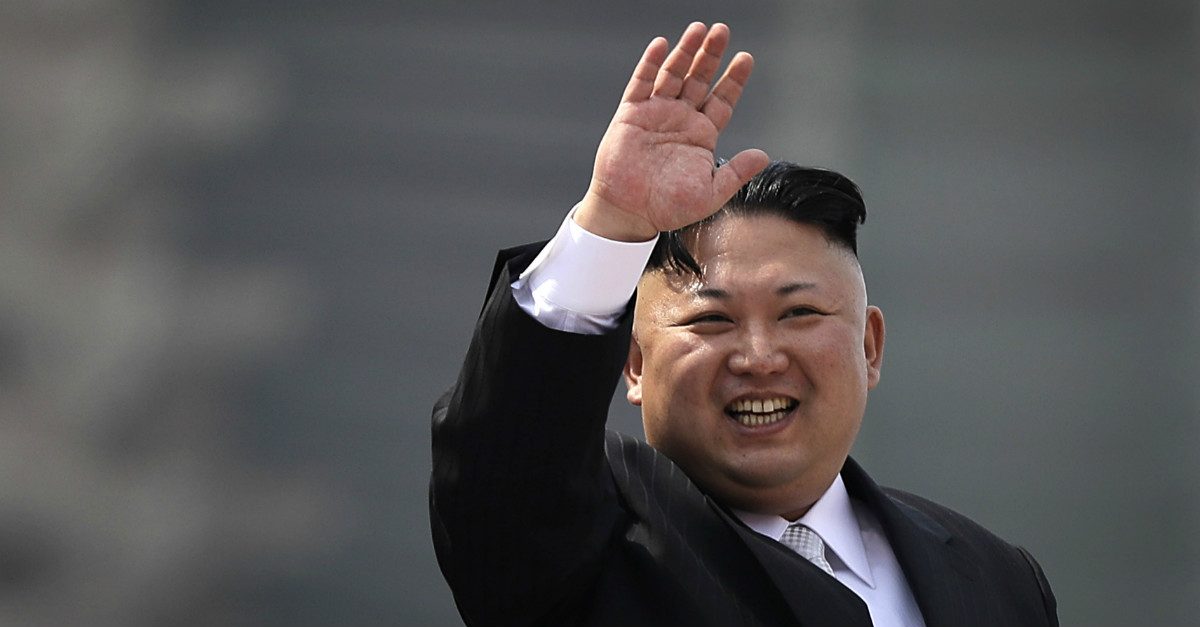When it comes to the nightmare that is North Korea, sometimes numbers tell the best story. Consider these:
Videos by Rare
- According to Victor Cha’s must-read book “The Impossible State,” over 1 million people have died in North Korean gulags.
- There are today 200,000 people in prison camps for a litany of so-called “offenses.” One of these camps is 216 square miles in size—or three times the size of Washington, D.C.
- According to one estimate, 25 percent of all North Koreans who enter a prison camp die of disease while in confinement.
- While North Korea pursued nuclear weapons in the 1990s, as many as 2.5 million of the rogue regime’s citizens died of starvation, many of them from famine.
- While the worst of the famine is over, 10 million people are still undernourished with as many as 18 million dependent on food rations for their survival.
North Korea last weekend proved that it is closer than ever to spreading its misery across the globe—and potentially soon to the U.S. homeland—thanks to ever more sophisticated nuclear weapons and missiles, many of which were put on parade for the world to see. Combined with existing stockpiles of chemical and biological weapons, 1.2 million troops, 7.7 million in reserve, and—potentially the most frightening of all—large amounts of artillery pointed at Seoul, Kim Jong-un’s capacity for unleashing hell seems unprecedented.
Is there a way out of this mess, a way of achieving some sort of lasting peace?
RELATED: Just after showing off its missiles, a North Korea test launch failed in spectacular fashion
According to a piece for Politico by former secretary of defense William Perry, now just might be the time to negotiate. Anything said by Perry—who negotiated extensively with Pyongyang back in the 1990s under President Clinton—should be taken seriously. Perry’s argument hinges on two recent developments. First, China might be ready to help solve the problem:
This is not to say that China must be solely responsible for solving the problem of North Korea, but rather the U.S. should make China a full partner in the formulation and implementation of the new approach. China is the only nation that can provide powerful economic disincentives for North Korea, by withholding their substantial food and fuel support. China has been unwilling to do this so far, but in recent months, North Korea’s nuclear threats have become increasingly adverse to China’s core interests. Not only could the provocations lead to a destabilizing regional war, which now seems like more than a theoretical possibility, but they also increase the likelihood that Japan and South Korea will develop their own nuclear weapons, a circumstance China is eager to avoid.
And second, Kim just might fear America’s military enough to deal, thanks to recent events:
During negotiations with the last two administrations, North Korea’s leaders were convinced, with good reason, that the threat of U.S. or South Korean military action was empty, and accordingly, they discounted it. But it is likely that the recent military actions taken by the Trump administration, from the Tomahawk missile strike in Syria to the deployment of an aircraft carrier group to the Korean peninsula, have changed their calculus. Kim Jong Un must now believe that there is a real possibility that the U.S. is prepared to use military force, and must tailor his actions accordingly.
Let’s assume that Perry is correct, and not only are there talks between the United States and North Korea, but some sort of resolution is worked out—maybe President Trump even has his Nixon-goes-to-China moment and visits Pyongyang.
Would true peace be possible in the long run?
Remember those stats above. Just because there is no imminent threat of nuclear annihilation from North Korea does not mean the regime is about to change its ways. Kim is constantly brainwashing his citizens into believing that the United States is the main reason they’re poor. Pyongyang pollutes the minds of its people with the notion that they need nuclear weapons to survive—and they suffer because of it. What happens when America is no longer the enemy?
RELATED: No, Donald Trump isn’t going to start a war with North Korea
It’s important to consider how the American people would respond to better ties with Pyongyang. We know from history that Americans can handle working with nations they don’t truly like—consider Maoist China under Nixon and Stalin’s USSR during World War II—but in an age where social media can spark a massive outcry for justice, it’s hard to determine how much the American public would be able to stomach. Would Americans really be okay with a transactional relationship with a nation that is the closest thing to pure evil? While a realist like myself can hold his nose—it’s better than millions of people dying in a nuclear holocaust—liberal internationalists and neoconservatives might have some serious concerns, and many Americans might share them.
Here’s another example to consider: think about a world where, after some sort of agreement toward smoother relations, the outside world begins to penetrate North Korea. Imagine North Korean riots erupting over food, or human rights, or simply wanting a better future like their brethren to the south. Then imagine Kim responding with mass killings, even chemical weapons attacks like Saddam Hussein carried out in the 1990s. Would America honor a peace agreement then? Or would the Trump administration go Syria and launch cruise missiles?
This mental exercise isn’t meant to pooh-pooh the idea of negotiations with North Korea, something I am very much in favor of. We should just remember that anytime anyone tries to negotiate with Lucifer, they shouldn’t expect too much. We might get an agreement that lessens tensions, but until the day the Kim dynasty ends, we will never be truly safe.



